A check that is made out to multiple parties can raise a lot of questions. This legal form of transferring money means following the law and banking regulations, which can be a little confusing. If you are wondering if you can cash a check that has "Mr. and Mrs." in the pay-to-the-order-of line, we can help you. We research the rules and regulations on check cashing so that you'll know for sure what can be done.
You will be able to cash a check made out to "Mr. and Mrs." as long as both parties are listed on the bank account.
Now that we know that a bank will cash a check made out to "Mr. and Mrs.," we'll take a closer look at how this is done. You might also be wondering if you can cash a two-party check without the other person or if a bank can refuse to cash a check. For the answers to these questions and more, read ahead in this post to see what our research has uncovered.
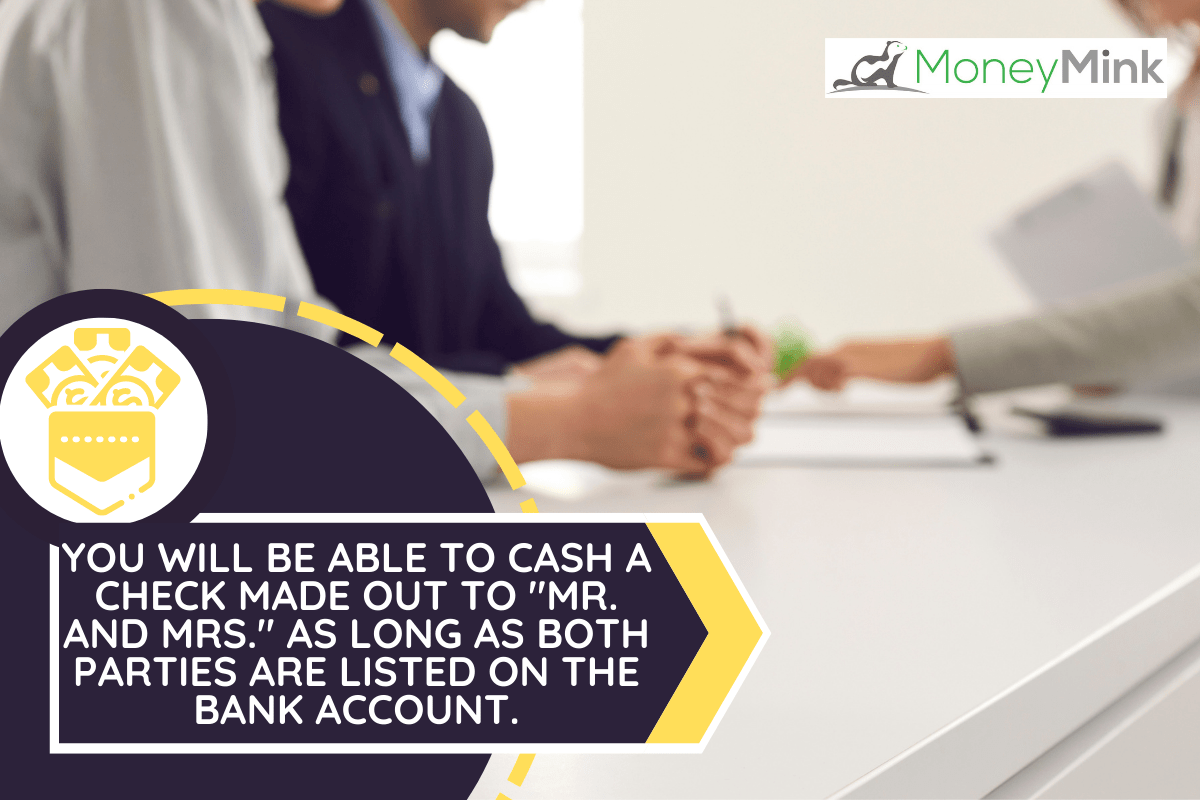
How To Cash A Check Made Out To "Mr. And Mrs."
The most common reason you might have checks made out to "Mr. and Mrs." is after a wedding. Instead of gifts from your wedding registry, you will have many guests that will shower you with cash and checks. And many times you will see the checks made out in that fashion.
Open A Joint Bank Account Before The Wedding
Before your wedding, it's a great idea to open a joint bank account. It doesn't have to be a checking account, either. A savings account with both of your names on it will do the trick, too.
By having this account already established, you are showing a financial institution that they can accept checks made out to both of you. If only one name is on the account, it can get a little tricky.
It's A Good Idea To Carry Your Marriage License With You To The Bank
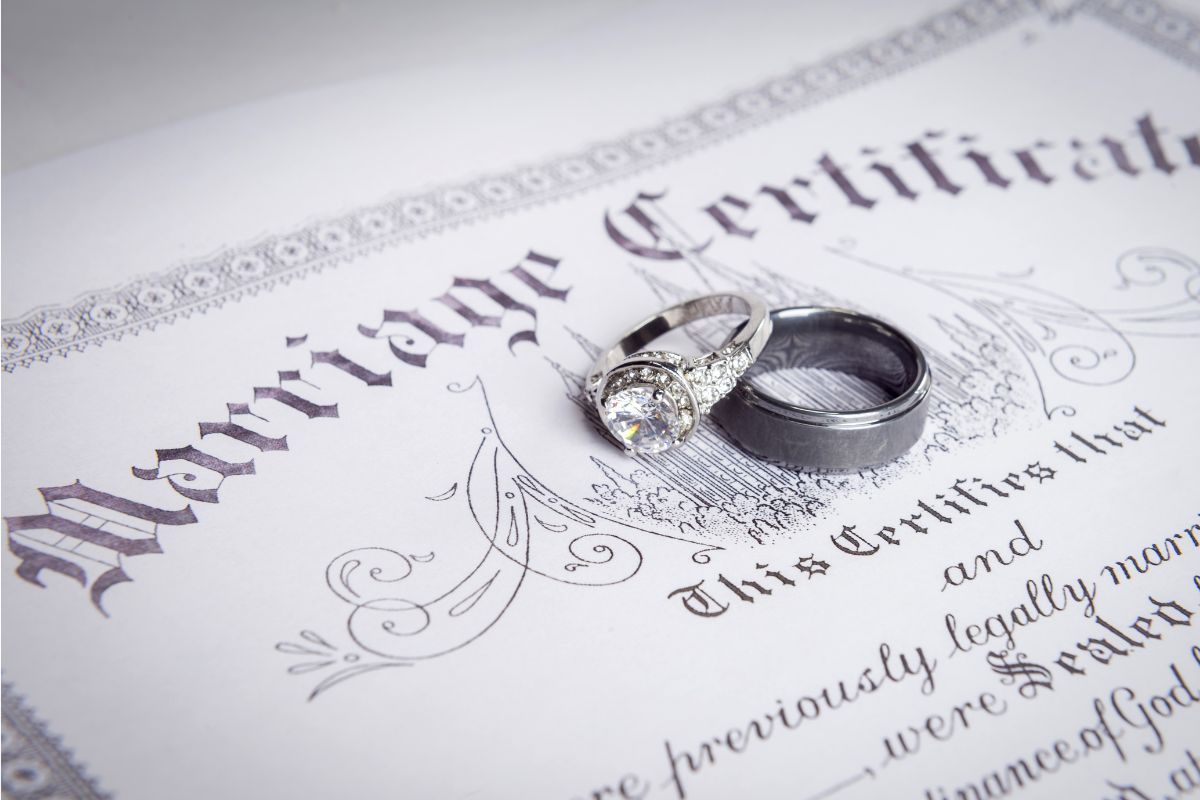
If one of you is changing your surname after the wedding, you most likely will not have this name change reflected on your legal ID when you go into the bank to cash the checks.
The majority of the time, this won't be an issue. They'll ask for both of your IDs when you cash the checks, and the last name mismatch in these situations isn't generally anything to worry about.
There are times when bank clerks will be sticklers, however. If the last name on the check doesn't match the last name on one ID, they might be a little concerned. But if you can provide your wedding certificate or a copy of your marriage license, this should be enough proof.
The ATM Deposit Can Also Be Used In This Situation
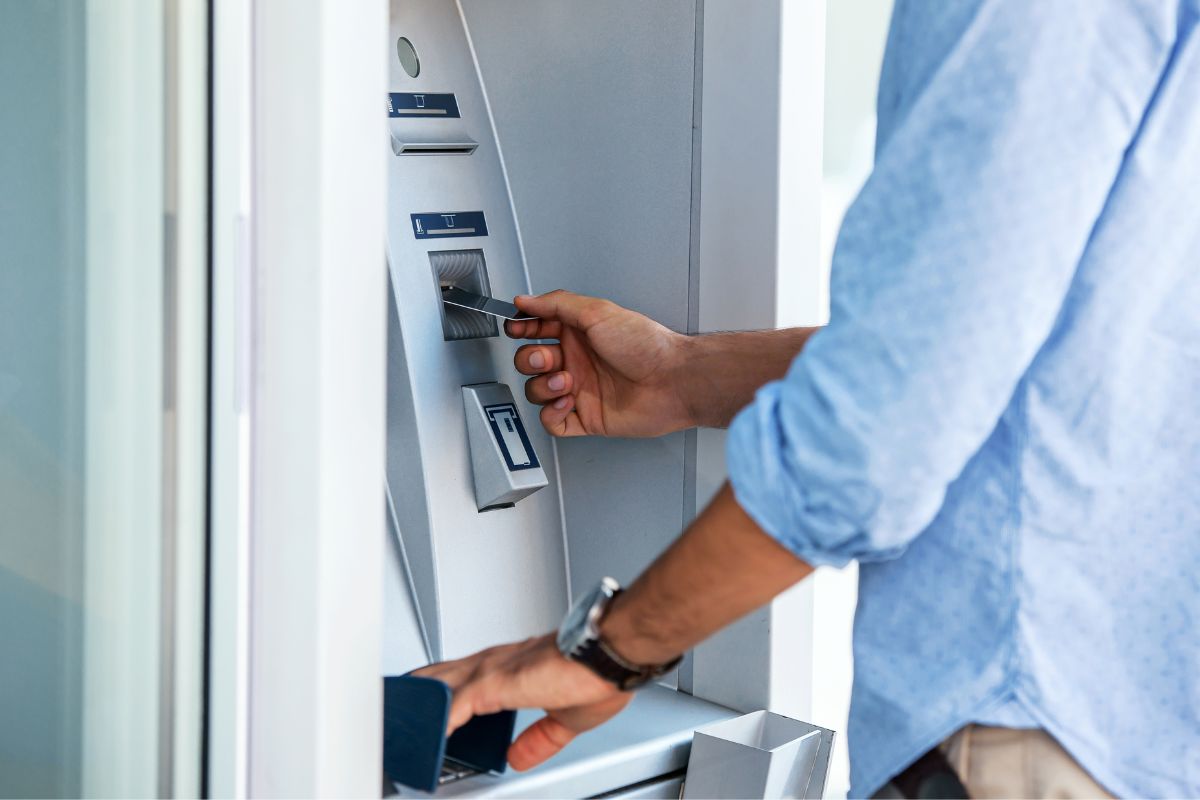
And if you aren't getting anywhere in person when trying to deposit your checks, there is another way to go. Deposit the checks through your branch's ATM. In a day or two when they clear, you'll have the money in your joint account without any hassle.
Before You Deposit The Checks...
Since the check is made out to two people, it will require both of you to legally endorse the back of it. On the endorsement line, you should each provide your signature.
This will be enough to deposit the check into the ATM. If you are depositing in person, some banks will require both parties to be present. This is especially true if you are wanting to withdraw any funds as a result of this deposit.
Can I Cash A Two-Party Check Without The Other Person?
There might be situations where someone wants to pay you by giving you a two-party check. These are checks that involve two payees. If you are listed as one of them, it can take a bit of effort to get it cashed.
We suggest always having both parties present when the check is cashed if the word "and" separates the names of the two payees.
This tells the bank that the funds belong to both parties. But if the names are separated by the word "or," that's another matter. A two-party check written this way shows the bank that either party is entitled to the funds.
To make it easier, we suggest that the original payee is with you when you cash any check that is meant for you both. These checks should be signed (endorsed) on the back by both payees in front of the bank clerk. You should each have a valid ID that matches the name on the payee line.
Of course, if both payees are listed as joint account holders, you will most likely only need one of you at the bank.
Can A Bank Refuse To Cash A Check?
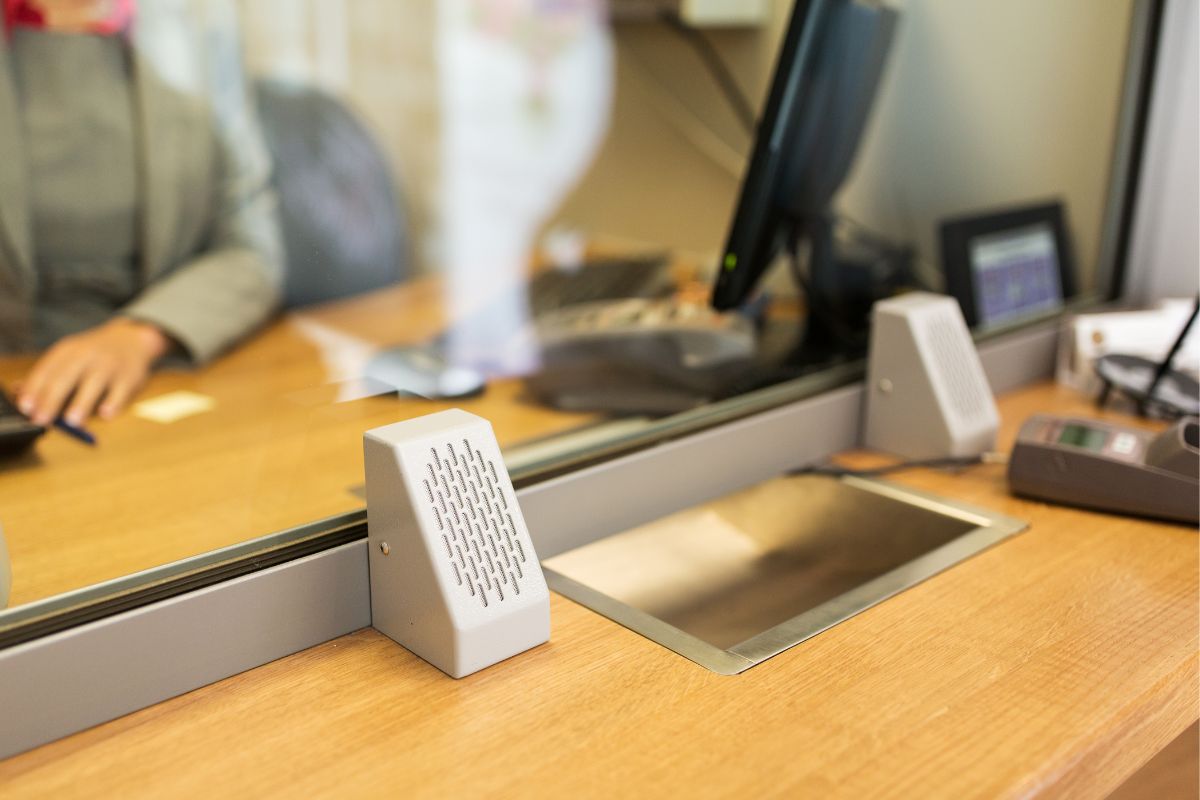
The check you are about to cash or deposit is a legal transfer of funds from an account holder to the payee. When preparing to make a deposit, there are a few items that should draw your attention.
While you might think that a bank has to honor the check, you'll find that there are reasons why banks refuse to cash checks. Knowing what these reasons are might save you some time and frustration.
Banks Will Sometimes Refuse To Cash An Old Check
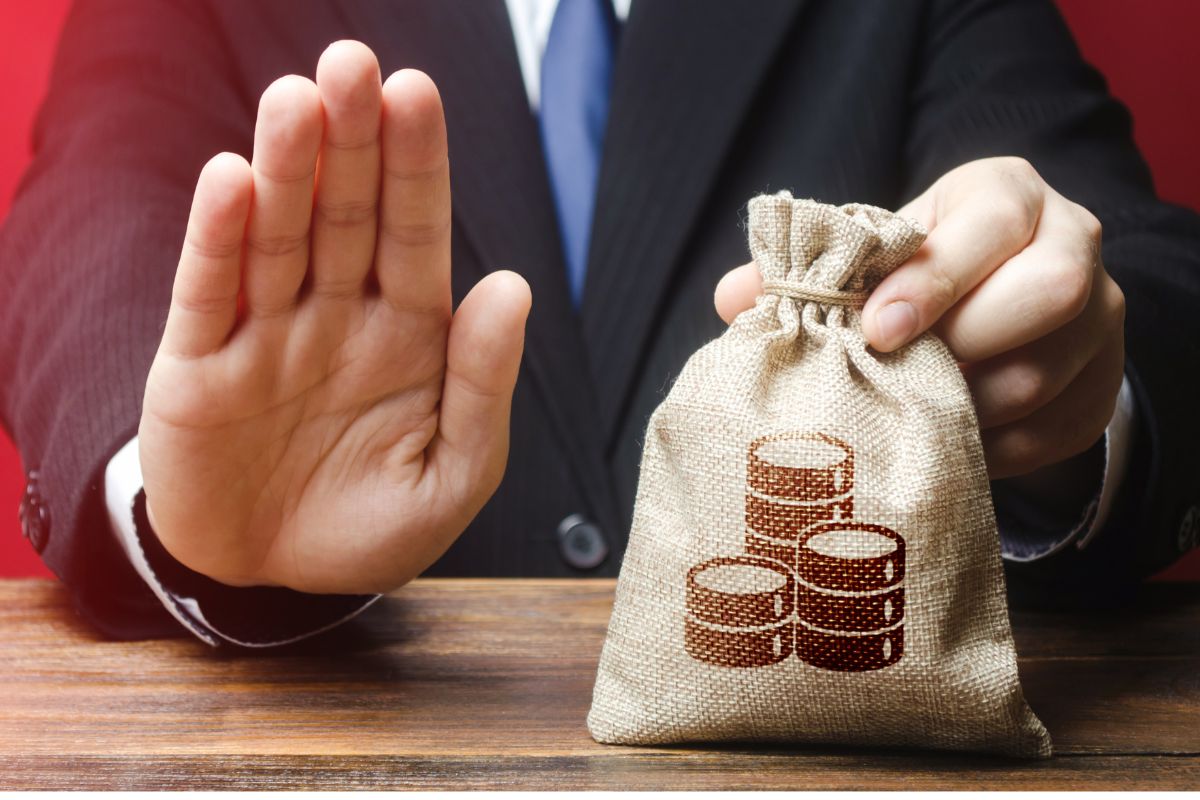
If your check is from a business or government, there will almost always be fine print on the front that reads "Void after 'X' days." Though clerks will sometimes overlook it, they aren't technically allowed to cash it for you. Doing so would violate the instructions on the check.
If you have an old check with a lapsed VOID AFTER date on it, you'd be better served to get the payer to issue you a new check. And a bank will sometimes refuse to cash a check dated more than 90 days ago even without that instruction.
Checks that are old increase the risk of insufficient funds and closed accounts. So don't be surprised if you get turned away if the check you are trying to cash is ancient.
Some Banks Will Refuse To Cash Your Check If You Aren't An Account Holder
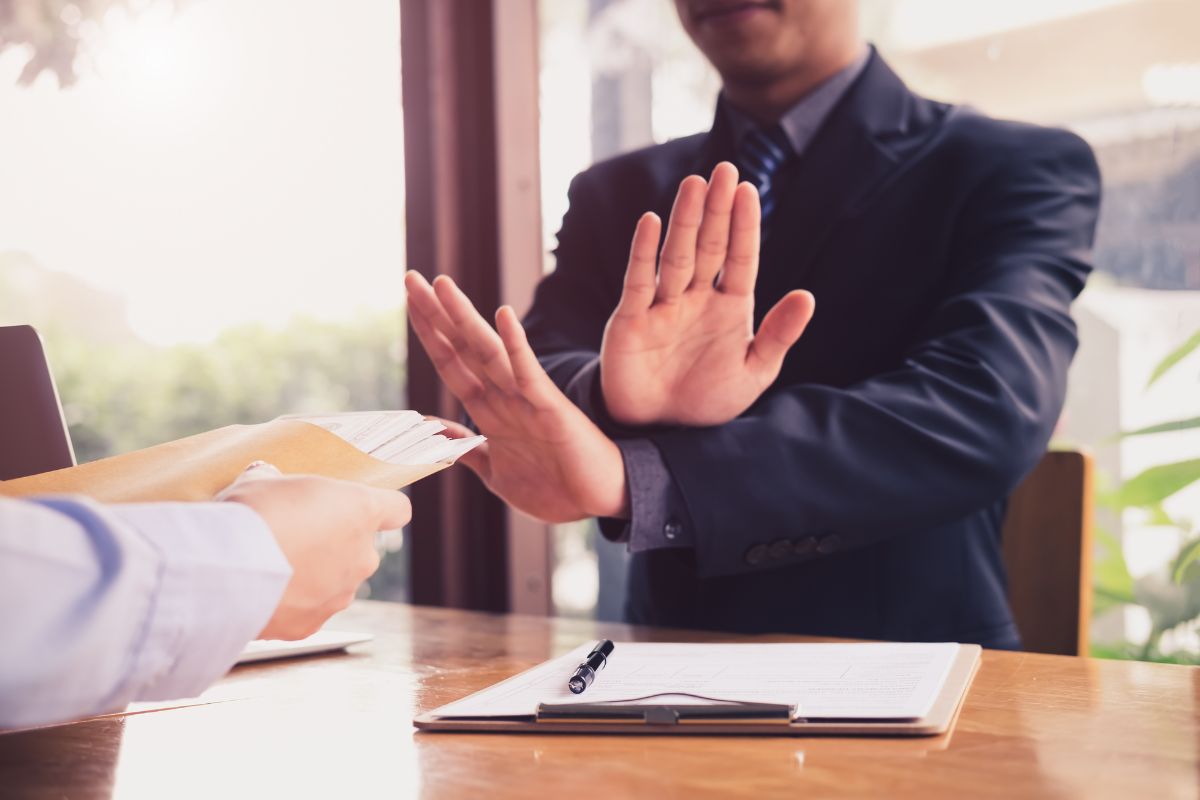
It's always best to cash your check at the place that you bank. Banks are much more accommodating to their account holders. It might not be a surprise to you then to know that you could get denied if you try to get the funds elsewhere.
You might be in a position where you cannot get to your bank branch. Try to cash the check at the bank the payer uses. If that isn't an option, there is another method that should work.
For a fee, check cashing businesses will accept the check and give you the funds. Be aware that these institutions are not banks; they will charge a hefty fee for cashing any check.
You Will Be Turned Away Without A Valid ID
While you can deposit a check in most cases without an ID, it's almost impossible to cash one unless you can prove who you are. The bank will want a photo ID. A state-issued one is best, and it cannot be expired.
Though your branch might recognize you as a familiar face and let it pass if they know you, getting this to slide by at a branch where you are unfamiliar will be impossible.
Banks Will Sometimes Balk At The Amount
In the days of living nearly cashless, many banks do not carry a lot of cash on hand each day to operate. If you are trying to cash a large check, there is a chance that doing so would deplete the bank's daily cash reserve. Even if they wanted to help you, they might not be able to do it.
For larger checks, we suggest calling ahead of time and speaking to the bank manager. They will instruct you on whether or not they can do it that day.
An appointment for a later date might be suggested. They might also want to meet with you in the manager's office. That way, the transaction can be carried out privately.
Post-Dated Checks Can Be Denied
As with checks that have a VOID AFTER line on them, the date at the top is an instruction to the institution that is holding the funds. If the payer post-dates the check, it shows the bank that the payer has no intention of releasing those funds until that date.
This is often overlooked. But don't be surprised if your bank turns this check away until the date on the check.
Final Thoughts
Checks made out to "Mr. and Mrs." can usually be cashed without any issues. If you are getting married, establish a joint account first. Be aware of your bank's check cashing policies if you are cashing a two-party check. And call ahead for larger transactions.
We hope that this post answered all of your questions. For additional helpful information, we suggest reading the following posts:
What Color Pen Should You Use When Writing Checks?
What Grocery Stores Qualify For Discover Cashback?
Who Does Boat Loans? [20 places where you can get a loan for buying a boat]

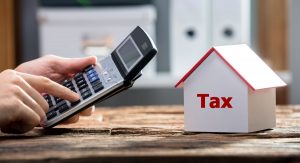
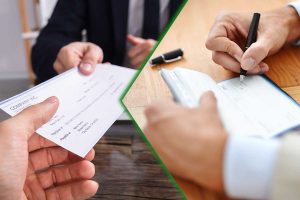
![Read more about the article Can You Use A Walmart MoneyCard Anywhere? [Inc. Paypal]](https://moneymink.com/wp-content/uploads/2022/05/Assorted-walmart-inc.s-mobile-apps-are-seen-on-an-iPhone-300x200.jpg)